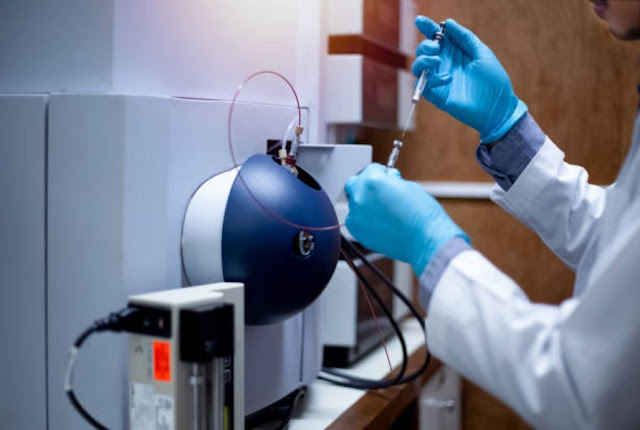Lung Cancer Pill Cuts Death Risk by Half in New Study

In recent medical news, a breakthrough discovery has emerged
in the fight against breast cancer. A pill, specifically designed to reduce the
risk of recurrence in early-stage breast cancer, has shown remarkable success
in clinical trials. According to the latest study, this revolutionary
medication has demonstrated the ability to decrease the likelihood of cancer
returning by an impressive 25 percent.
Breast cancer is a significant health fear worldwide,
affecting millions of women each year. Despite significant advancements in
treatment options, the risk of cancer recurrence remains a constant fear for
patients and healthcare professionals alike. However, this new pill brings hope
and promise for those diagnosed with early-stage breast cancer.
The clinical trial, conducted over several years, involved a
large group of patients who had undergone surgery for early-stage breast
cancer. The participants be situated randomly assigned to two groups, with one
receiving the new medication and the other receiving a placebo. The trial aimed
to evaluate the usefulness of the pill in reducing the risk of cancer
recurrence over a specified period.
The results of the study were groundbreaking. The group of patients who received the pill demonstrated a 25 percent lower risk of cancer recurrence compared to those who received the placebo. This statistically significant reduction in risk has tremendous implications for breast cancer patients and the medical community as a whole.
The mechanism of action of this pill involves targeting specific
biological pathways associated with cancer growth and progression. By
interfering with these pathways, the medication disrupts the ability of cancer
cells to increase and spread. This targeted approach represents a significant
advancement in breast cancer treatment, as it addresses the root causes of
cancer recurrence.
Furthermore, the pill demonstrated an excellent safety
profile throughout the clinical trial. Common side effects were generally mild
and manageable, with no major adverse events reported. This favorable safety
profile is an important consideration in the development of new cancer
treatments, as it ensures that patients can receive the medication without
undue risk or discomfort.
The implications of this groundbreaking discovery are
far-reaching. Not only does the pill provide hope for early-stage breast cancer
patients, but it also has the potential to significantly reduce the burden on
healthcare systems worldwide. By decreasing the risk of cancer recurrence, the
pill may lessen the need for more aggressive and costly treatments such as
chemotherapy, radiation therapy, and surgery.
Moreover, the psychological impact on patients cannot be
overstated. The fear of cancer recurrence often looms large in the lives of
cancer survivors, impacting their quality of life and mental well-being. The
availability of a pill that reduces this risk by 25 percent offers a newfound
sense of security and peace of mind. Patients can focus on their recovery and
enjoy a better quality of life, knowing that they are taking an active step to
prevent cancer recurrence.
In addition to its potential application in early-stage
breast cancer, researchers are also exploring the pill's efficacy in other
types of cancer. The underlying biological pathways targeted by the medication
may have relevance beyond breast cancer, opening up possibilities for its use
in treating other malignancies. Further research and clinical trials are needed
to explore these avenues fully.
As with any medical breakthrough, there are still questions
and challenges that lie ahead. Researchers will continue to investigate the
long-term effects of the pill and its optimal duration of use. Additionally,
cost-effectiveness analyses and access to the medication for patients from
diverse backgrounds will need to be addressed to ensure equitable distribution.
Nonetheless, the development of this pill marks a significant milestone in the fight against breast cancer. With its ability to reduce the risk of recurrence by 25 percent, it has the potential to transform the lives of millions of women worldwide. As further research unfolds, this medication could become a standard part of breast cancer treatment, providing hope, security, and a brighter future for patients and their loved ones.


